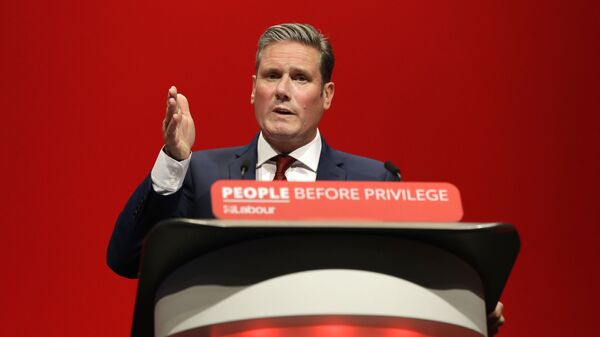Jeremy Corbyn’s constituency nominated Sir Keir Starmer for next Labour party leader on Saturday.
In a shocking result, Corbyn’s constituency of Islington North has nominated Keir Starmer to be Labour party leader in place of presumed Corbyn-continuation candidate Rebecca Long-Bailey.
The Islington North constituency Labour Party (CLP) narrowly voted to support Starmer as leader of the Labour Party and Angela Rayner to serve as deputy leader.
Islington North CLP nominates:
— CLP Nominations (@CLPNominations) February 8, 2020
• Keir Starmer to be leader of the Labour Party
• Angela Rayner to be deputy leader of the Labour Party
This CLP nominated Jeremy Corbyn in 2015 and 2016.
Twitter went into furore as Starmer, who is considered to be a more moderate candidate, secured the support of Corbyn's own CLP.
I mean I don't like Starmer's politics at all, and I hope (although I don't believe) that RLB will win. But this is Islington North; if her campaign was doing well you would expect a decisive RLB vote, not a narrow Keir victory.
— Rowan Fortune (@RT_Editing) February 8, 2020
Keir Starmer supporters getting the nomination from Islington North CLP be feeling like: pic.twitter.com/8uRUDmCYkJ
— Tom Wilson (@feedthedrummer) February 8, 2020
Islington North members said Starmer won the nomination by 3 votes over Long-Bailey, while Starmer supporters were pushing his connections to radical leftwing publication Socialist Alternatives, which he edited in his early 20s.
Support from Corbyn’s north London stronghold indicates Starmer as the clear favourite to succeed the ardent socialist.
Starmer has secured the support of more than twice the constituency Labour parties than Long-Bailey, who still remains as his nearest competitor for the top position.
The CLP nominated Jeremy Corbyn in 2015 and 2016 and the move is seen as a real defeat for Long-Bailey as she pitches herself as the left-wing candidate.
The Labour leadership contest has been underway since Jeremy Corbyn said he would not be leading the party into any future elections following the party's defeat in the December 2019 general election.
Ideology has presented itself as the key divider as the contest will determine the direction of the party post-Corbyn and post-Brexit.


